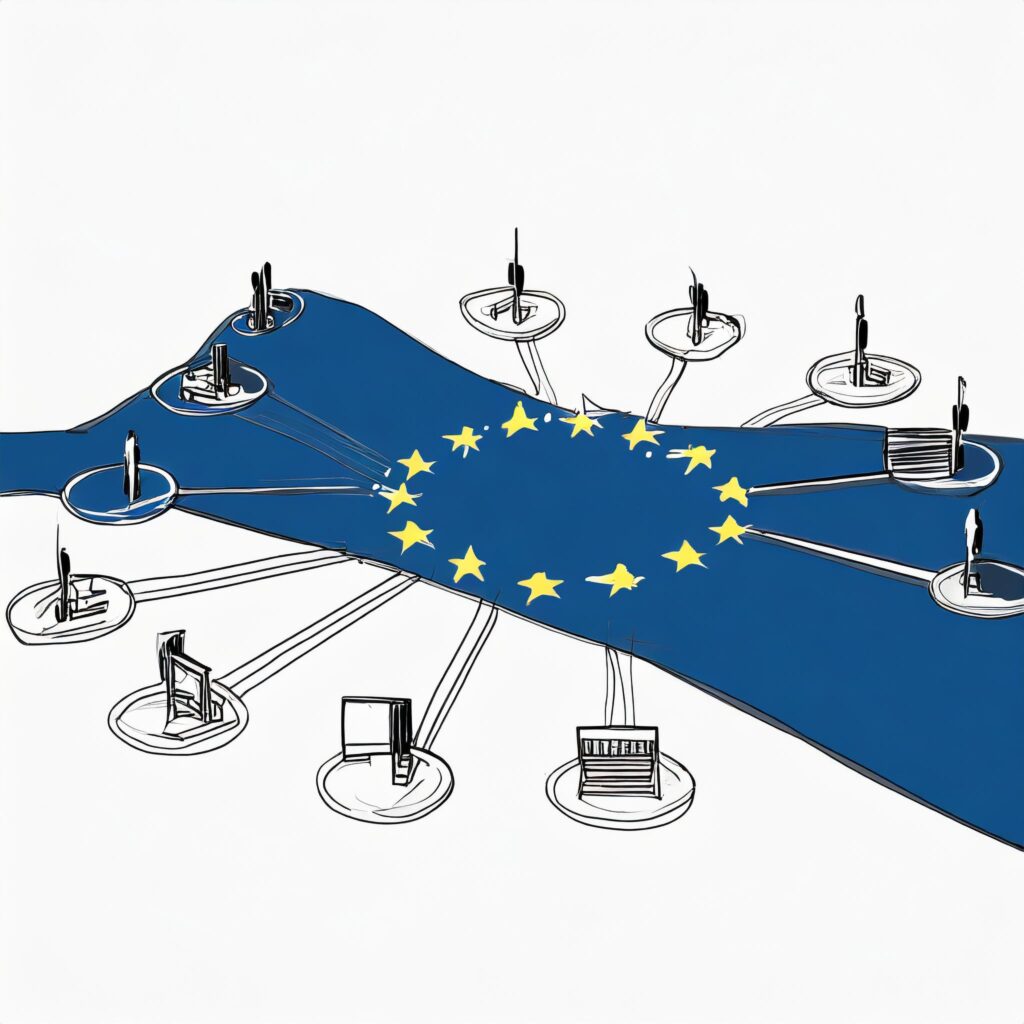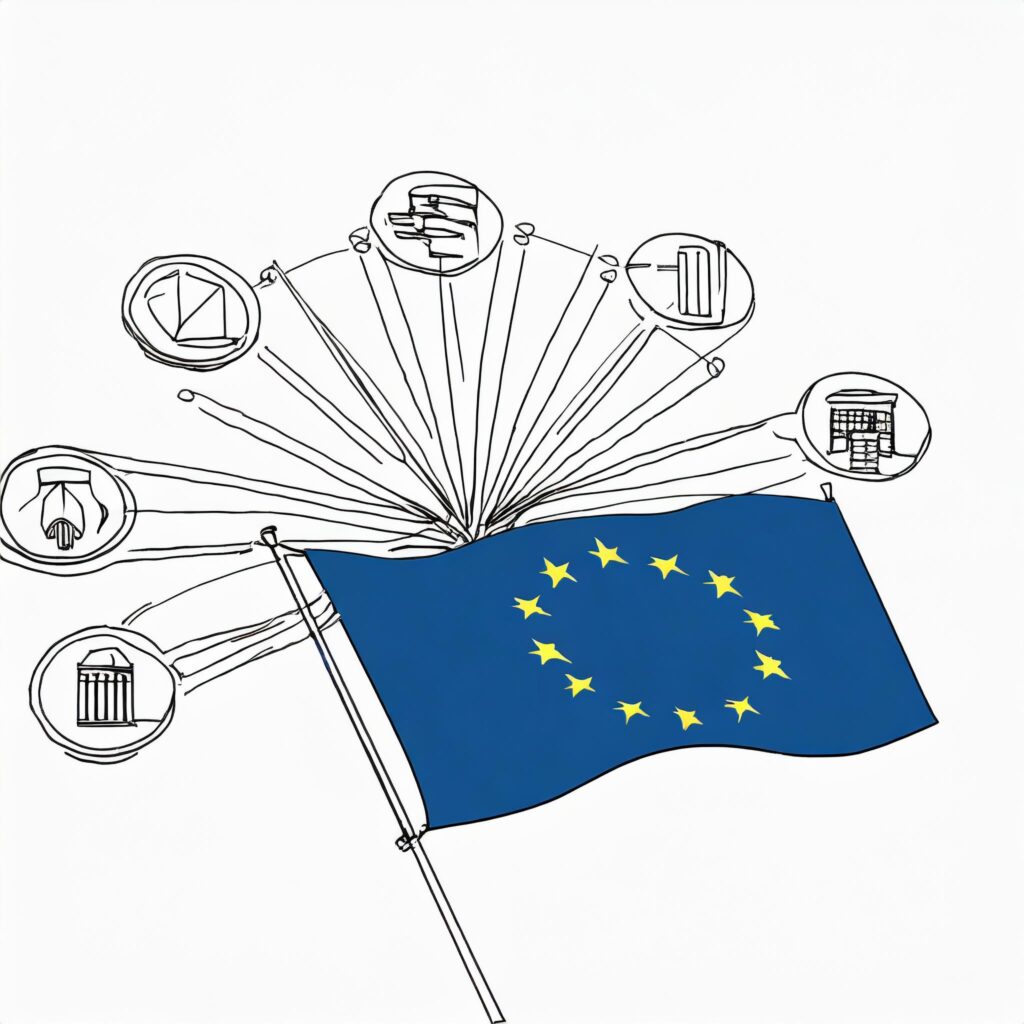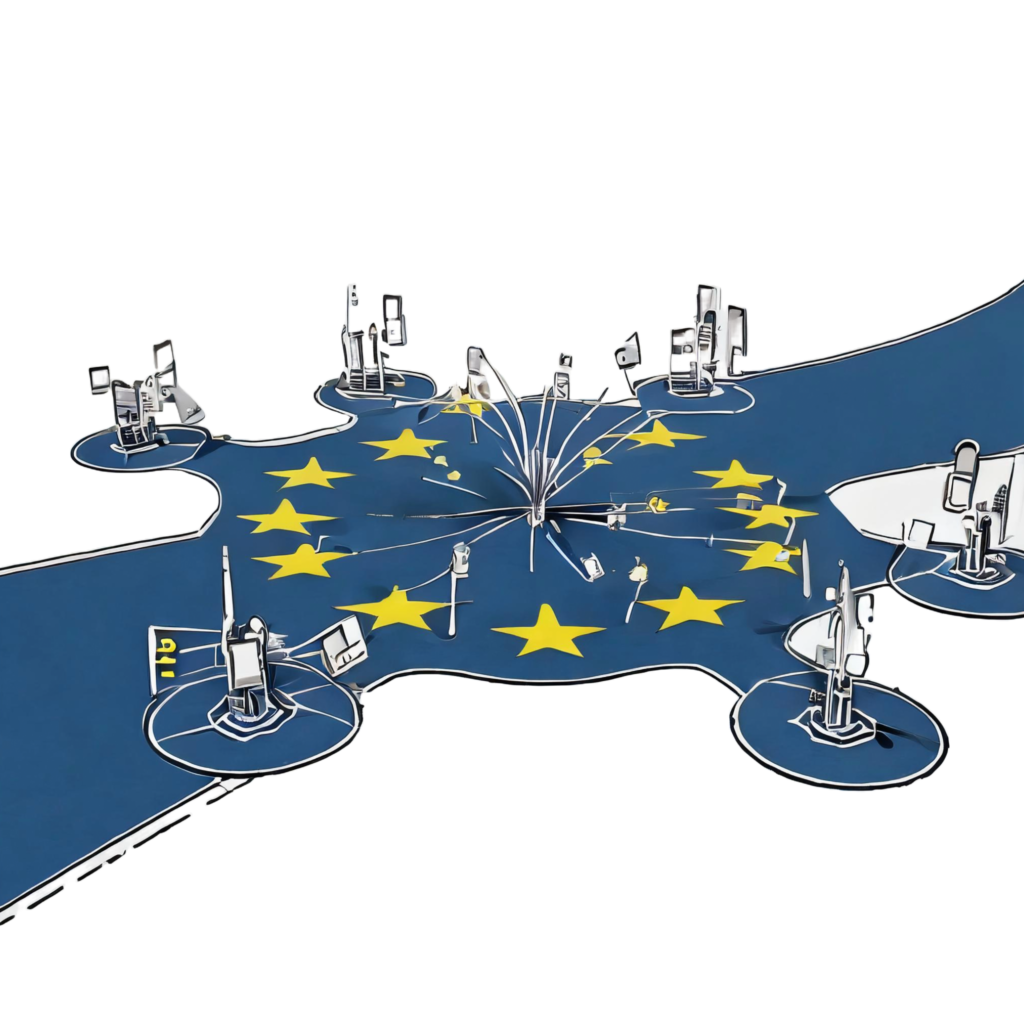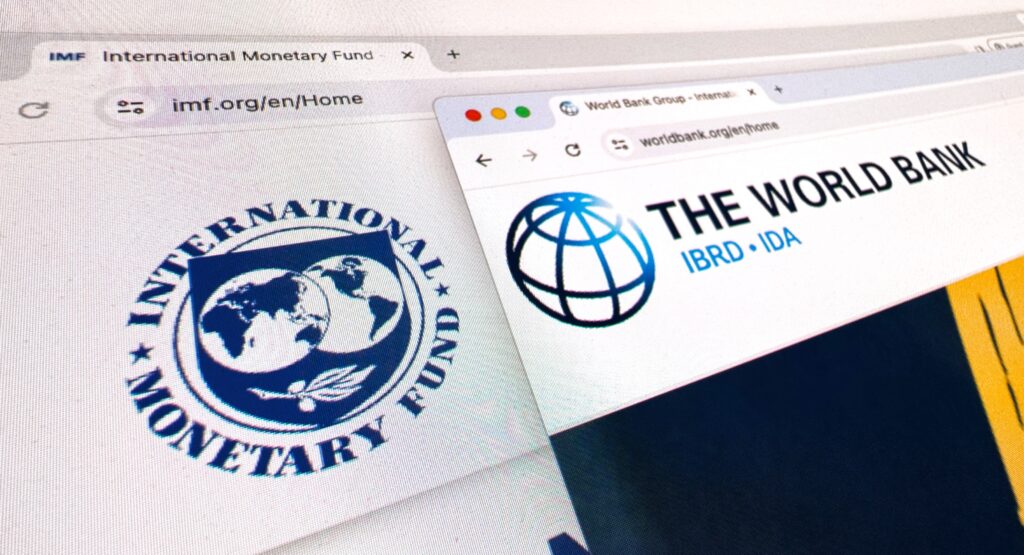| By Lauren LaPorta |
In an unprecedented move, the European Union initiated investigations into tech giants Apple, Google, and Meta, scrutinizing their business practices under the newly implemented Digital Markets Act (DMA) of 2022. This landmark EU legislation serves to ensure fair competition and prevent monopolistic behavior in digital markets. The DMA has the potential to reshape how tech companies operate across Europe.
Understanding the Digital Markets Act
The Digital Markets Act, part of the EU’s broader digital strategy, was established to curb the monopolistic tendencies of major tech companies and foster a more competitive digital environment. The DMA targets ‘gatekeepers’—firms with substantial control over market access for businesses and consumers. These gatekeepers are identified based on specific criteria, such as having a strong economic position, a significant impact on the internal market, and a durable position in their field of operation. The act lays out a clear framework that prevents these companies from abusing their dominant positions to stifle competition. Tech companies must now adhere to operational obligations included in this framework that promote fairness and transparency. For example, they cannot favor their own services over those of others and must provide third-party companies with access to their platforms under fair and reasonable terms.
The DMA is a response to growing concerns about the ‘winner-takes-all’ nature of the digital economy where a few companies hold significant power. This act not only aims to regulate tech giants more effectively but also to introduce penalties for non-compliance, which could include fines of up to 10% of the company’s worldwide annual turnover.

The Investigations Begin
According to the European Commission, the specific allegations against Apple, Google, and Meta vary but generally revolve around their use of market power to unfairly edge out competitors. Apple is under scrutiny for its App Store policies, which restrict competition by limiting how apps are marketed and downloaded. Google’s vast advertising network and its control over data used for personalized advertising are also being examined. Similarly, Meta’s handling of advertising data across its platforms could potentially breach DMA rules. The EU has expressed its concern that these tech giants might be exploiting their pivotal role as gatekeepers to impose conditions that harm consumers by reducing choice and innovation in the tech space.

Impacts of the Investigation
The outcomes of these investigations could have far-reaching implications not only for the companies involved but also for the entire tech industry. A ruling against the three companies could lead to major changes in how they operate in Europe, potentially providing a more level playing field for smaller tech companies to attain a greater market share. This would improve consumer services and innovation, as competitors would have a fairer chance to succeed. Furthermore, these high-profile cases are being closely watched by regulators around the world and could influence how other governments approach tech regulation. The DMA serves as a model for similar legislation elsewhere, as global policymakers seek to address the challenges posed by the digital economy’s concentration of power.




